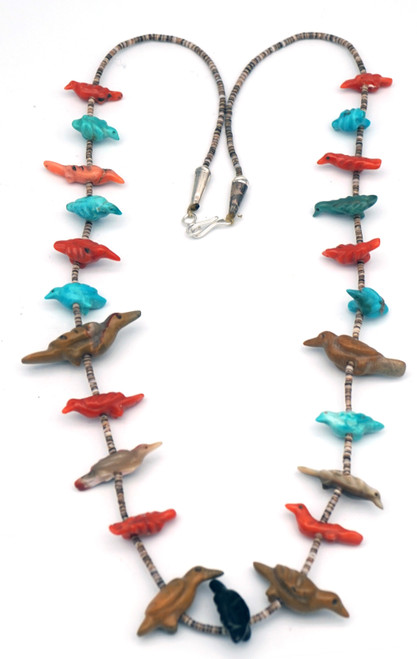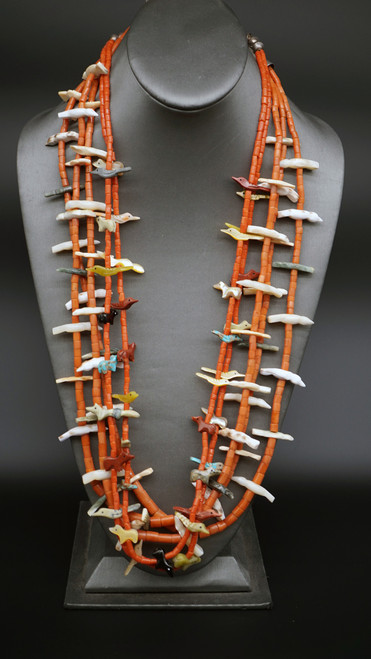- Tribe: Zuni Pueblo
- Condition: Excellent Vintage Condition; No broken fetishes with a tiny bit of wear to a beak or two. It has been restrung
- Size: 26" long, 23 carved birds graduating from approx 1-1/2" - 1/2"
- Artist: Leekya Deyuse
- Materials: Natural Turquoise, Coral, Zuni Rock and and fine heishi shell all strung on string
- Item Weight: Approximately 40 grams
- Date: circa 1940's
- Hallmark: We attribute this to Leekya Deyuse. Most of the birds are sitting on pedestals and all have unique softly carved wings distinct to Deyuse.
VERY VERY RARE vintage Native American handmade fetish necklace by the GREATEST carver in history Zuni Leekya Deyuse. If you appreciate truly great Zuni work of the C. G. Wallace era, then this is the fetish necklace for you. We purchased this from a collection in Santa Fe, NM. The collection had many beautiful fetish necklaces including a second Leekya and a stunning signed David Tsekewa. This necklace has been restrung as is typical for old necklaces.
"In 1942, John Adair, author of the classic study The Navajo and Pueblo Silversmiths, described Leekya Deyuse and Teddy Weahkee as Zuni's "most expert turquoise-workers." Leekya is perhaps the best known of all Zuni fetish carvers and his work garners the highest prices. Like Weahkee, he participated in the archaeological dig at Hawikuh (1917-1923) where he gained first-hand knowledge of pre-contact Zuni carving. Leekya worked with a number of traders, but his relationship with C. G. Wallace was probably the most productive. Most of Leekya's pieces were produced entirely with hand tools; however, in his later years he adopted electrical tools.
Leekya crafted stone tab and nugget necklaces, small fetishes that traders strung into single and multi-strand necklaces, and larger free-standing fetishes. Many of his fetish carvings were set into the tops of silver boxes crafted by Navajo artists in traders' employ. " (Ohio Edu)













